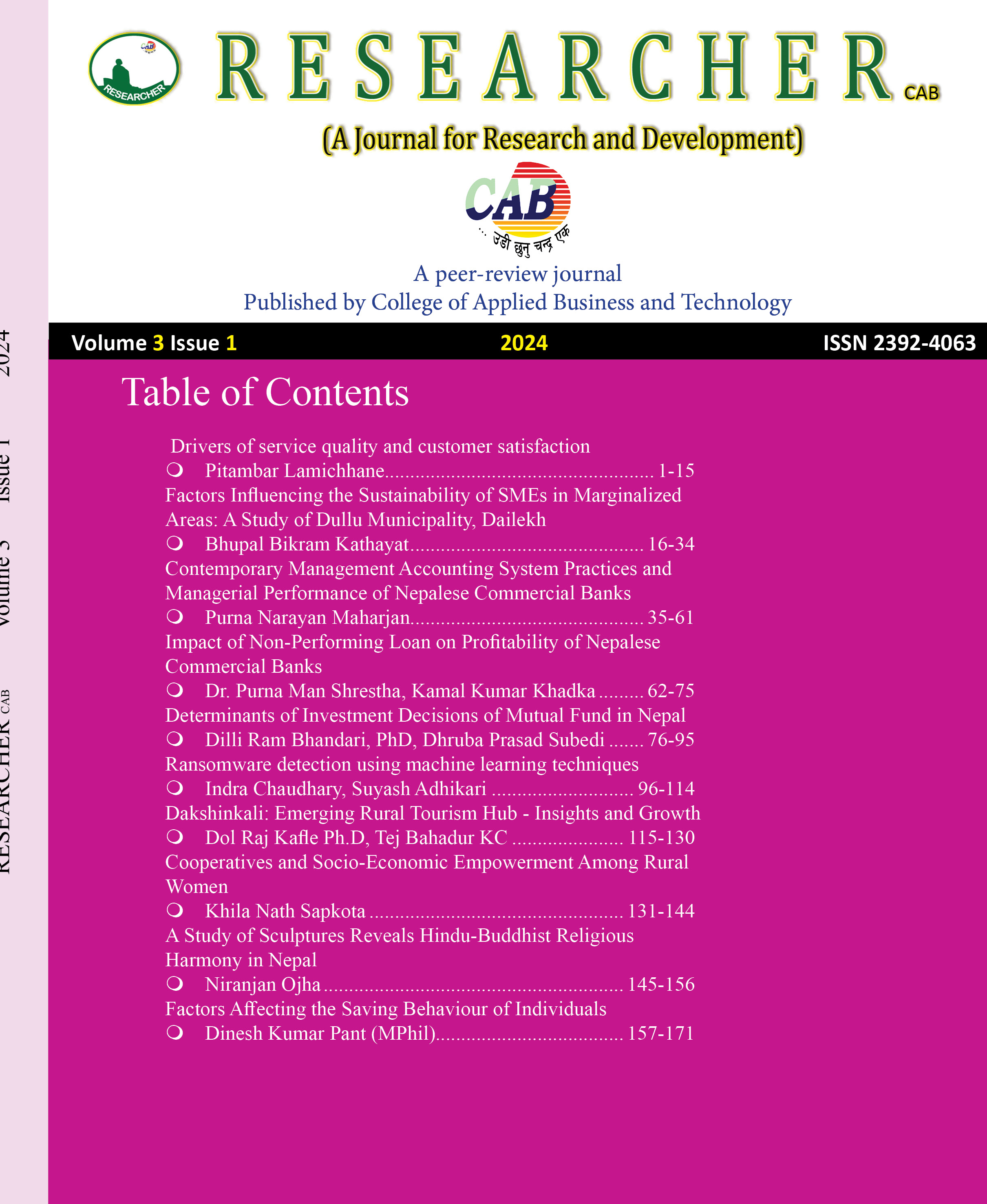Contemporary Management Accounting System Practices and Managerial Performance of Nepalese Commercial Banks
DOI:
https://doi.org/10.3126/rcab.v3i1.68421Keywords:
Contemporary management accounting system practices, managerial performance, commercial banksAbstract
Contemporary management accounting systems provide managers with the necessary organizational performance in commercial banks. The study examines the adoption and influence of contemporary management accounting system practices (CMASPs) on managerial performance within commercial banks in Kathmandu Valley, Nepal. The study treats costing, budgeting, strategic analysis, decision-support information, and performance measurement as independent variables, with managerial performance as the dependent variable. Employing descriptive and causal-comparative research designs alongside convenience sampling, the study gathered primary data from selected twenty Nepalese commercial bank branch managers and deputy managers using structured survey questionnaires rated on a 5-point Likert scale. Analysis encompassed descriptive statistics, and inferential statistics including mean, standard deviation, skewness, kurtosis, and structural equation modeling (SEM) via Path Analysis. The study reveals that CMASPs function effectively, positively affecting managerial performance. These findings highlight the significance of CMASPs in achieving superior managerial performance within Nepal's commercial banking industry, offering actionable insights for bank managers and policymakers aiming to optimize performance through effective CMASPs. Future research directions could explore these management accounting system practices across different sectors and investigate advanced MAS practices and technological integration.




